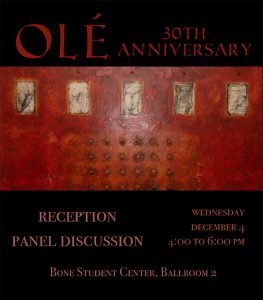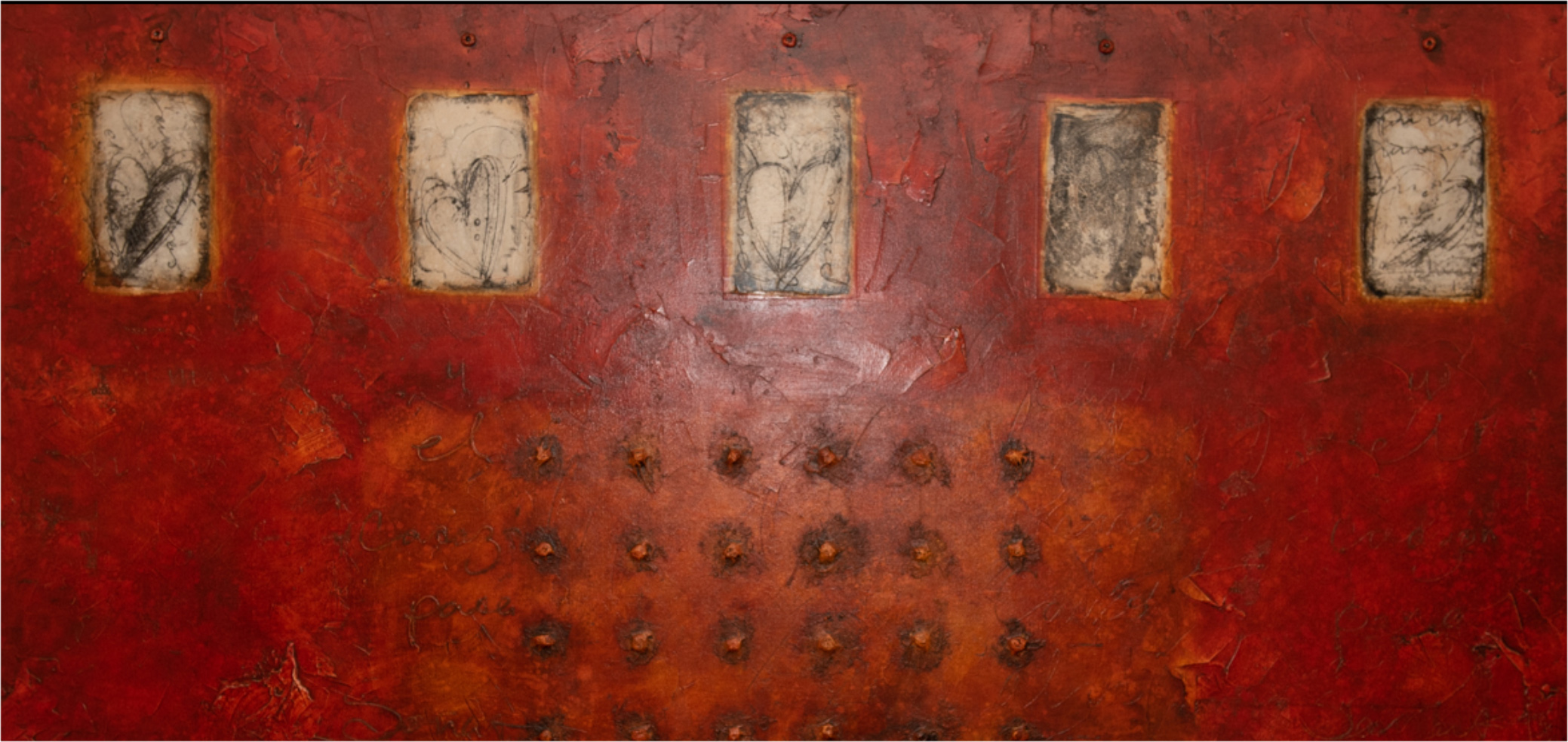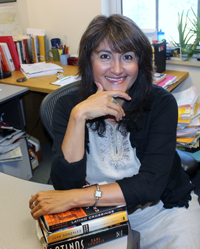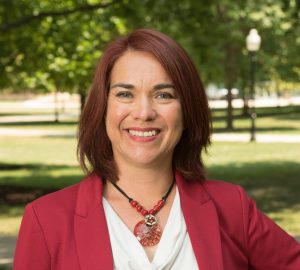Part advocacy, part celebration, part networking—the faculty/staff affinity group Organization of Latino Employees (OLÉ) began at Illinois State University in 1989.

The OLÉ 30th anniversary celebration will include a reception and panel discussion from 4-6 p.m. Wednesday, December 4, at the Bone Student Center, Ballroom 2.
In honor of the anniversary, a reception and panel titled “30 years of the Organization of Latino Employees” will be from 4-6 p.m. Wednesday, December 4, in the Ballroom II of the Bone Student Center. The event is free and open to the public.
Panelists will include Gigi Fansler, former co-chair of OLÉ; Louis Pérez, former OLÉ officer and retired professor of history; Rocío Rivadeneyra, current OLÉ chair and director of the Honors Program; Maura Toro-Morn, former co-chair of OLÉ and current director of the Latin American and Latino/a Studies (LALS) program; and Sal Valadez, founding OLÉ member and former assistant to the vice president for Student Affairs.
OLÉ began as a concerted effort of Illinois State faculty members to increase the presence of Latin American and Latino/a faculty, staff, and administrators on campus. Then-President Thomas Wallace convened a group to discuss challenges facing Latino/a employees, from which the advocacy group OLÉ emerged. “This is an example of a how a small community of intellectuals—faculty, staff, employees—came together to hold the University accountable for the needs of growing segment of the state’s population,” said Toro-Morn, who was teaching in the Department of Sociology and Anthropology in the late 1990s.
Originally called the Organization of Latin American Employees, the group formed under the first Chair Maria Canabal of the Department of Family and Consumer Sciences. “The first time I met Maria, she was asking why there was no Puerto Rican flag hanging in the Bone Student Center,” said Rivadeneyra of the old ceiling flag display. “When she was told Puerto Rico was technically part of the United States’ flag she answered, ‘Show me which star represents Puerto Rico.’” Rivadeneyra smiled at the memory of Canabal’s work to raise awareness. “She was amazing.”
The group shifted to the name Organization of Latino/a Employees to include the spectrum of a growing number of those who were U.S. born Latino/as. “An identity is about more than simply people who speak Spanish. “Our national identities may be different but the political identity Latina/o brings us together,” said Toro-Morn. “And now our language is shifting to the notion of Latinx,” which she said speaks to the tension between gender and sexuality.
Members of OLÉ continued their work mentoring Latinx students and promoting efforts for more Latinx programming. In 1994, OLÉ co-chairs Toro-Morn and Fansler joined Perez and Valadez to submit the “Comprehensive Plan for Latinos” for the University. The plan spelled out a need to serve the growing Latina/o population in the state as well as a commitment from the University to support students, faculty, and staff. “We were asking the University to incorporate diversity in a more systematic and institutional way,” said Toro-Morn.
OLÉ offers a voice for people who often feel they are not heard. — Rocío Rivadeneyra
Rivadeneyra flipped through the pages of one of several binders filled with OLÉ history. “It’s interesting to see what has changed over the years and what has not,” she said. Since the inception of OLÉ, the Latinx student population at Illinois State has grown from around 2 percent to 11 percent, during that same time, Latinx faculty members only grew from around 1 percent to around 2 percent. “There have been good changes, with LALS and the addition of the Latinx Heritage Month,” said Rivadeneyra. “And it helps to know that OLÉ is here.”
Aramis Martinez agreed. A new staff member in the Honors Program, Martinez started at Illinois State this fall. “Coming in as a new employee and a Latino employee into the University, it was impactful for me to see this organization was here,” said Martinez, who hails from Miami, Florida. “I saw an opportunity here to build a community and be part of a community.”
OLÉ’s integrated role of activism serves to make the University stronger, said Toro-Morn. “It’s so important to sustain engagement by demanding resources and offering help,” she said. “It challenges the institution to live up to its values.”
Affinity groups like OLÉ will continue to make a difference for employees at Illinois State, said Rivadeneyra. “For me, OLÉ offers a voice for people who often feel they are not heard,” she said.



